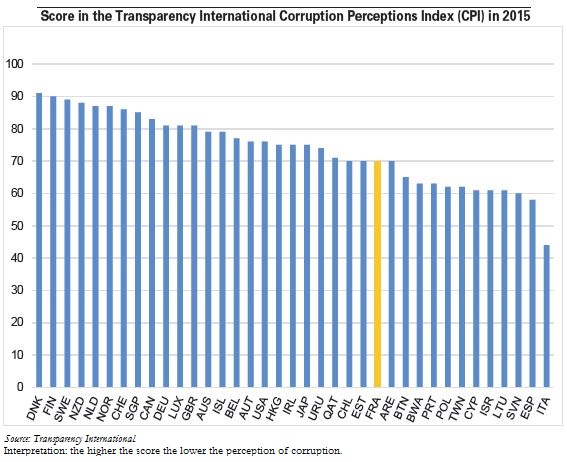Trésor-Economics No. 180 - Fighting corruption: positive impacts on economic activity, including in developed countries
Corruption has negative consequences for the economy because it affects the level, structure and calibre of public revenue and spending as well as private sector productivity.
Indices that measure perceptions of corruption can be used to establish a rich – albeit imperfect and incomplete – country-by-country overview of the situation. Developed countries have lower levels of perceived corruption than do emerging economies, although some developed countries still have room for improvement.
According to the Transparency International Corruption Perceptions Index (CPI), France, with its 23rd place, held an intermediate position among its European partners in 2015. Compared to its neighbours, France trailed Denmark (1st place), the United Kingdom and Germany (tied for 10th place) but was ahead of Spain (36th) and Italy (64th).
Numerous empirical studies have shown there is a strong negative correlation between corruption and economic activity as measured by the rate of GDP growth, although the magnitude varies sharply with the scope of analysis of the studies (particularly the geographic region and the period studied). In France's case, for example, the Transparency, Anti-corruption and Economic Modernisation Bill could generate positive economic impacts which would enable France to attain higher standards and thereby improve the perceptions and trust of economic operators.
